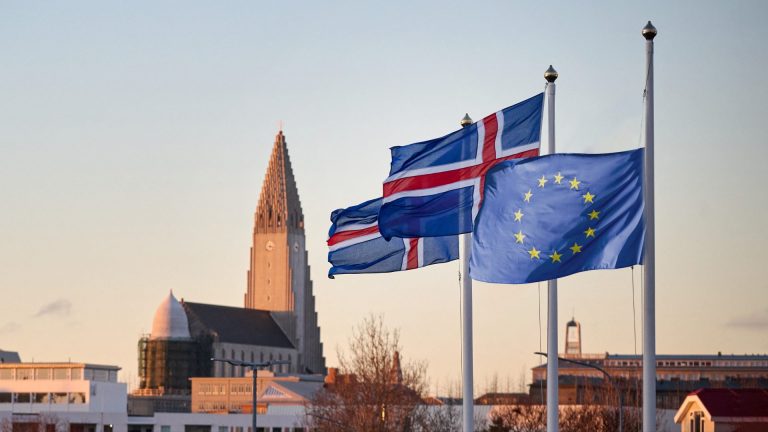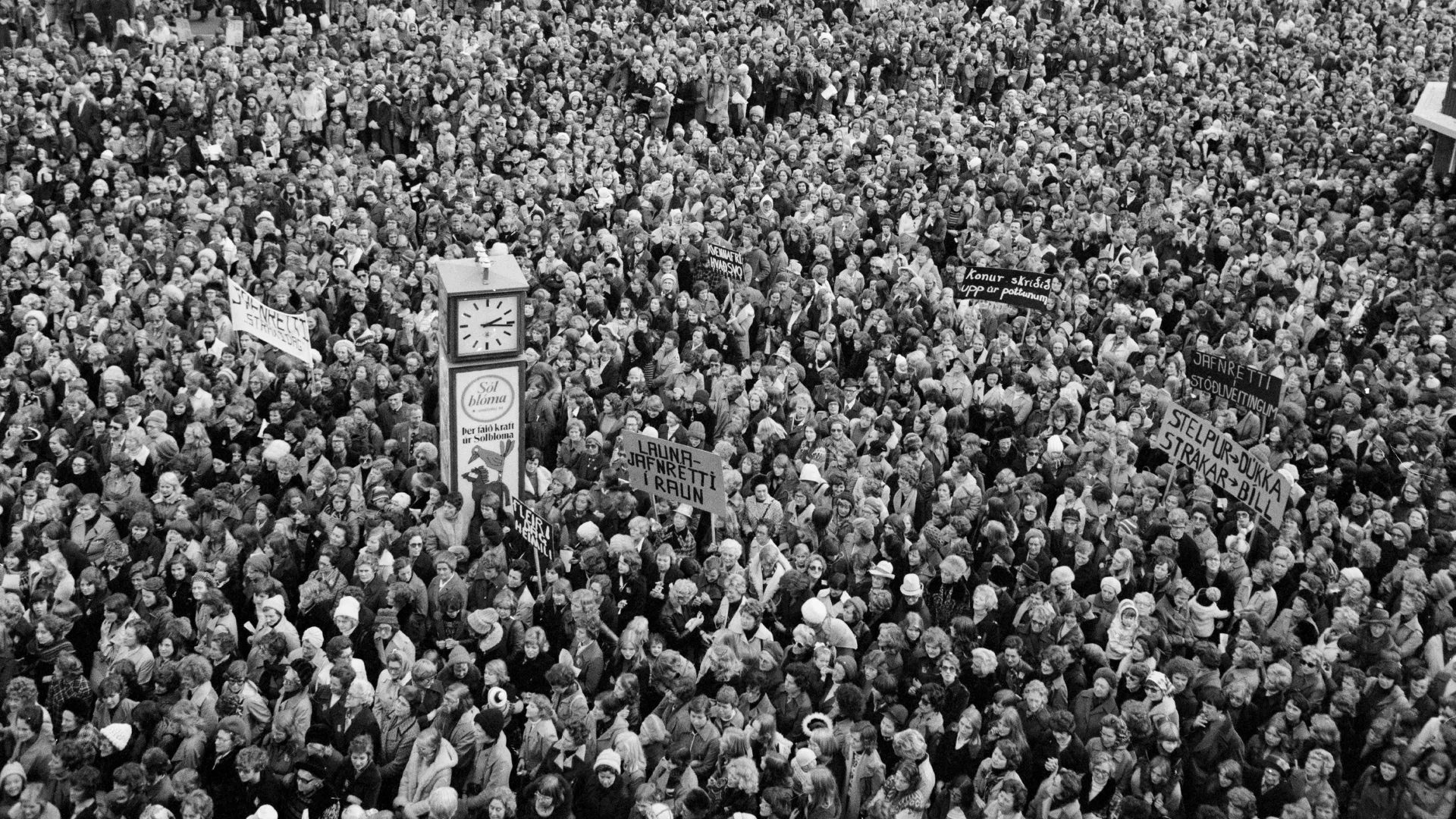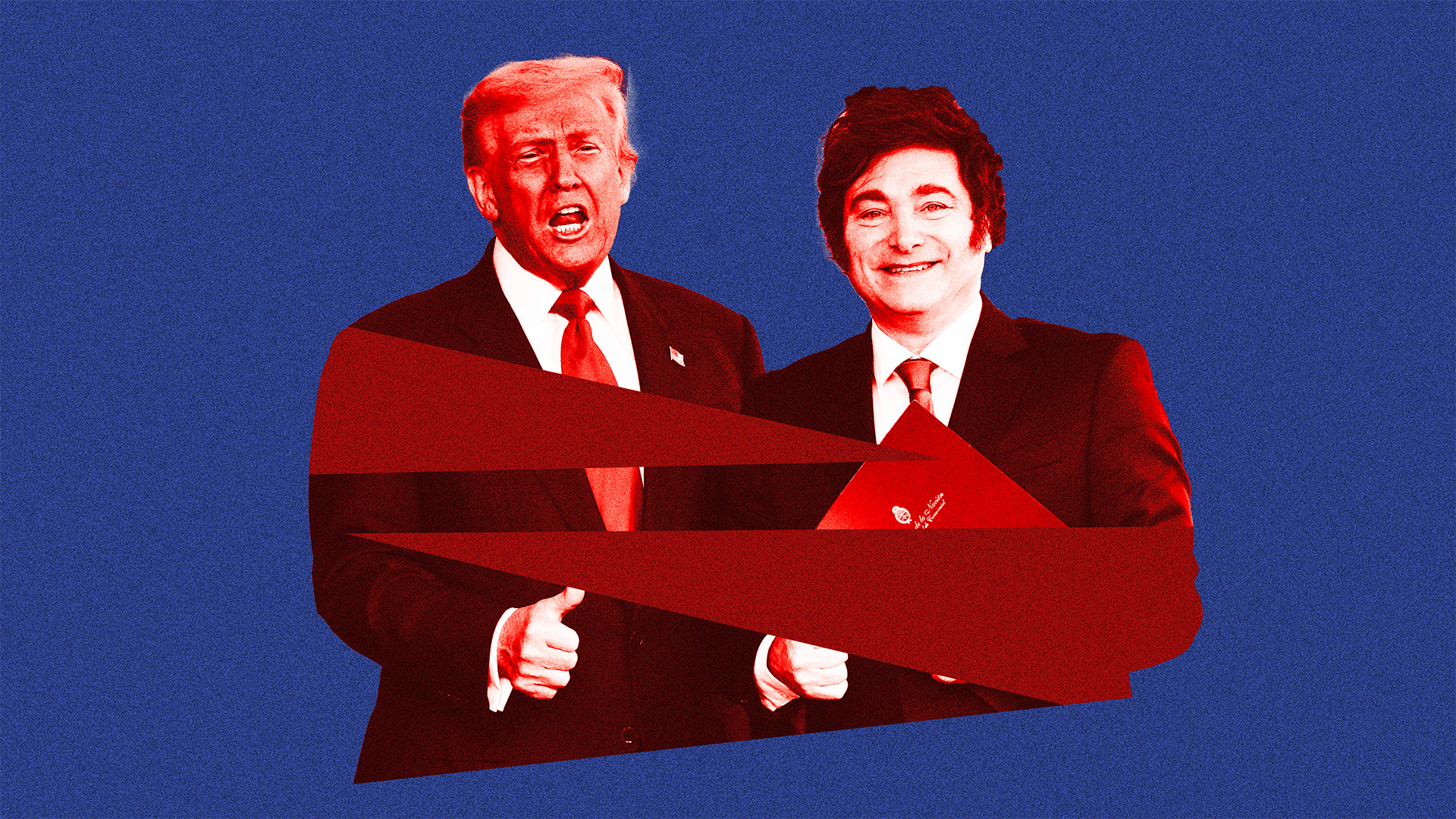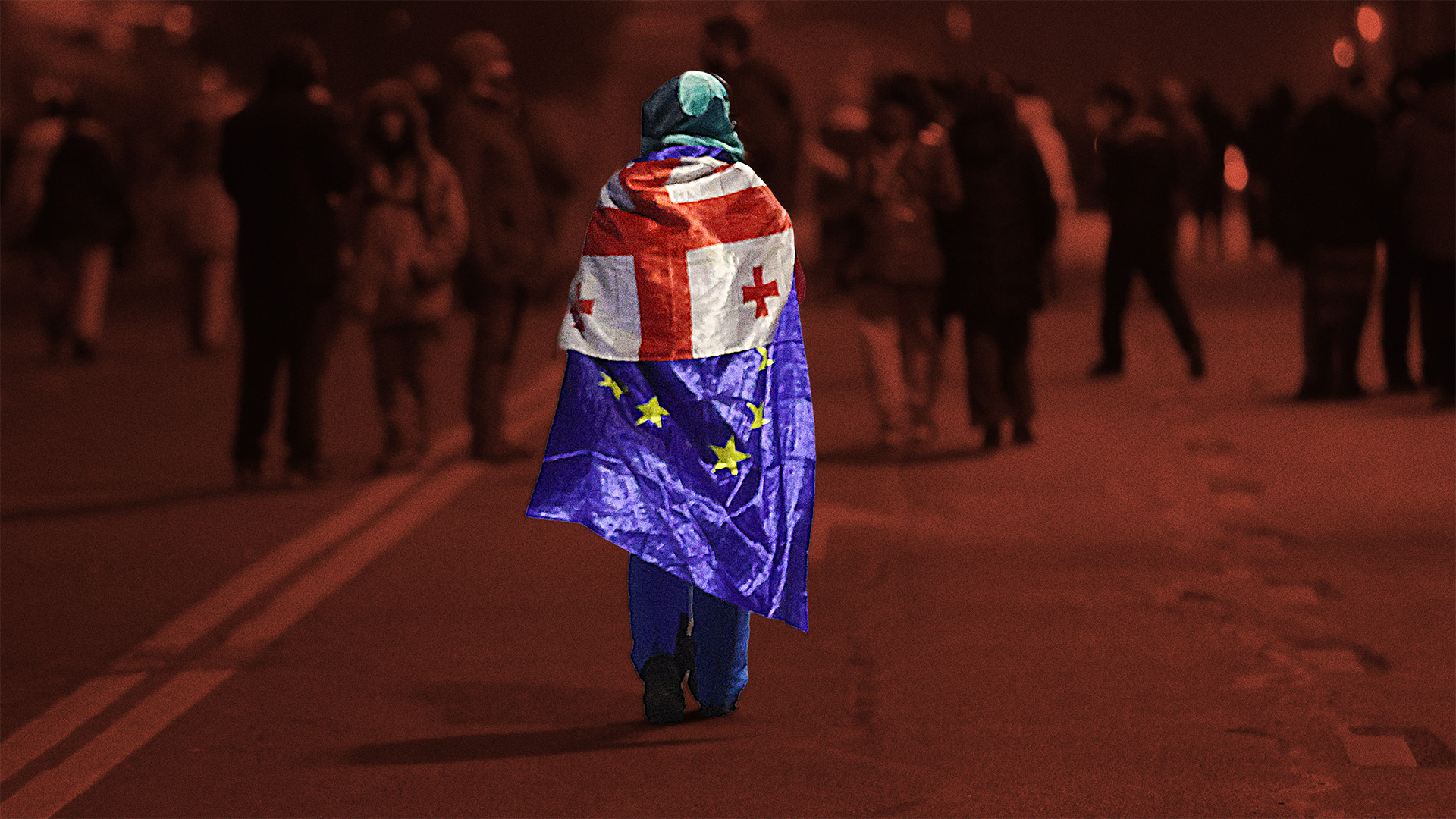On October 24, 1975, Iceland ground to a halt. Not from a storm sweeping the island but from the collective power of women, who simply stopped. They stopped working. They stopped cooking. They stopped taking the lead in childcare. For one day, 90% of Iceland’s female population withdrew their labour, paid and unpaid, to show that without them society could not function.
Iceland recently marked the 50th anniversary of that historic strike, and tens of thousands stopped and gathered in Reykjavík. The event commemorated a day that fundamentally changed Iceland and inspired women’s movements worldwide.
At the 1975 protest in Reykjavík were 25,000 women, out of a national population of just 220,000 – in effect it shut down Iceland. Fish factories closed because most of the workers were women. Newspapers went unprinted because typesetters were women. Banks stayed open only because executives stepped behind the counters when their female staff didn’t show up.
“I remember my father bringing me and my brother to work that day,” recalls Ásdís, a teacher. “There were children everywhere in the office that day, and no one explained to us why until the evening time. I’m proud to have participated this year.”
Before the strike, women working outside the home were paid 60% less than their male equivalents. They were also excluded from many jobs because they carried nearly all household and childcare responsibilities.
The impact was immediate and profound. The following year, Iceland’s parliament passed a law guaranteeing equal rights. But the deeper change was cultural. The strike paved the way for the election of Vigdís Finnbogadóttir in 1980, the world’s first democratically elected female president. She would later credit the strike as “the first step for women’s emancipation in Iceland.”
For 16 consecutive years, Iceland has topped the World Economic Forum’s Global Gender Gap Index, the only country to have closed more than 90% of its gender gap. The results reflect decades of policy improvements, including generous and gender-balanced parental leave, corporate board quotas, and mandatory equal pay certification for employers.
But despite pioneering an Equal Pay Certification Law in 2017, the country continues to have a pay gap of 10%. Women remain over-represented in lower-paid jobs, under-represented in leadership roles, and still shoulder childcare disproportionately.
“We’ve come so far, but we haven’t achieved enough,” says Hildur, a sales manager at a tourism company. “The laws are in place and the frameworks are there, but changing cultural patterns and attitudes takes generations.”
This year’s strike served as a reminder. It honoured the women who walked out of their jobs 50 years ago, but acknowledged that achieving full gender parity will require continued activism.
Suggested Reading

What would EU membership mean for Iceland?
“My grandmother was in Reykjavík that day in 1975,” says Alexandra, a student. “She told me how strong she felt, how she understood her own power for the first time in her life. I stopped this year because we still needed that same power.”
The women who stayed away from work could not have known they were igniting a transformation that would place Iceland at the forefront of global gender equality. But they understood that visibility is power, and that sometimes the most radical act is simply to stop, and in stopping, to show the world what it cannot afford to lose.
Jenna Gottlieb is a freelance journalist and author based in Iceland



